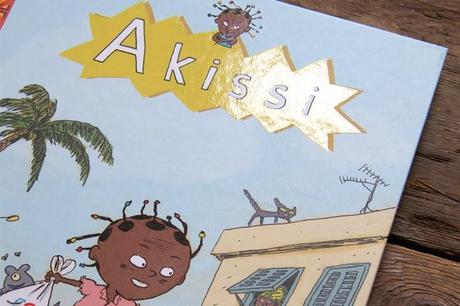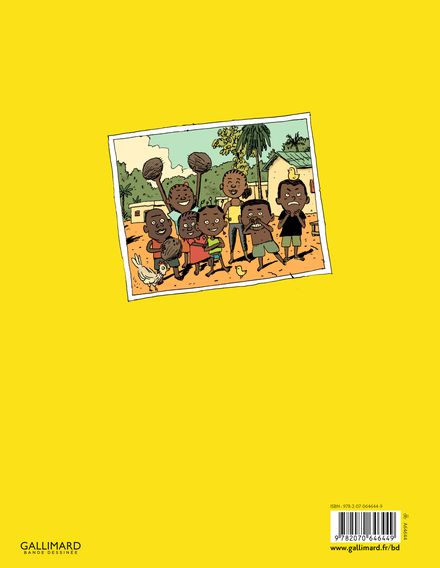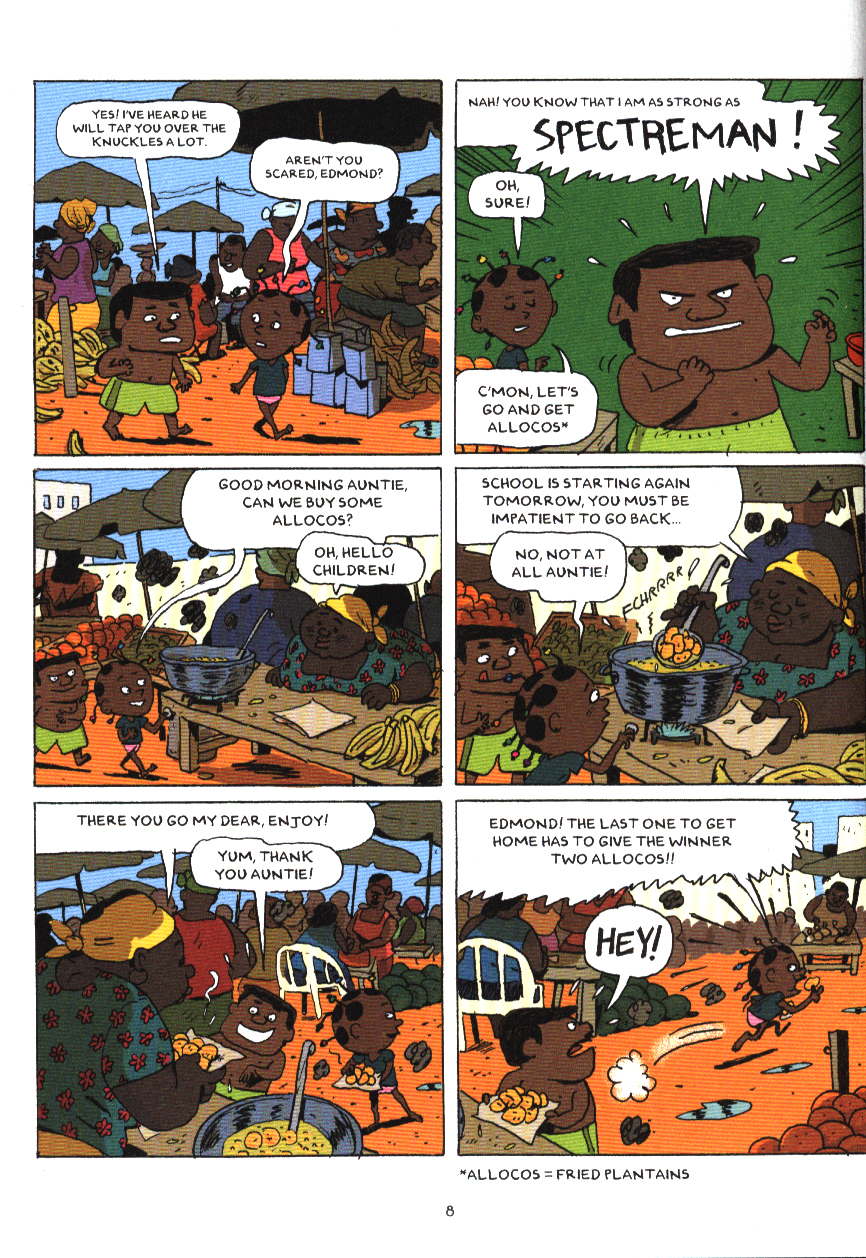


As a reader, I couldn’t help but smile at this show of playground defiance. When her older brother and his friend tell Akissi that girls are limited to playing goalie in soccer, she grabs their ball and plays anyway. Wether she’s running an errand for her mom or helping her brother with “pay to watch TV” schemes, Akissi says and does what’s on her mind – often to comic effect. Hence – she gets involved in some hi-jinks. Not exactly a full-on troublemaker, Akissi comes across as a believable kid with skamp-ish tendencies – wanting to do the right thing, but contending with factors (internal and external) that can sometimes make that hard to do. It also makes sense as it allows Akissi to finally give her tormenting older brother Fofanna some gross comeuppance. It makes sense that Abouet saved this story for last, as it is essentially the “Bernie Mac” of closers – it has to be the finale because when it’s over, there’s nowhere else to go. I don’t want to spoil it for you but I will say one word – a word that I can’t say I’ve seen in a book for kids: tapeworm.

It isn’t often when I see something in a children’s book that shocks me, but the final story was a glorious jaw dropper. Just about all of the tales will grab readers, who will likely be on the edge of their seats waiting to see how the stories end. The tales range from silly, like when Akissi’s pet monkey is lost and almost ends up as a neighbor’s dinner, to outragous, as when Akissi and her friends come upon an unattended baby and set to taking care of the tyke.

Over the course of seven short stories, we learn about Akissi, her family, and life in her west African town. In the tradition of Dennis the Menace, Akissi bursts onto the scene in this funny and unexpected collection of comics about a kid getting into some envelope-pushing shenanigans. But there’s a more straightforward attraction as well – in sheer interest terms, trouble trumps no trouble every time. Kids are especially intrigued, as their sense of wrong and right is still in its formative (see also: more black and white) stages. There’s something enduringly appealing about characters who find themselves in mischief.


 0 kommentar(er)
0 kommentar(er)
